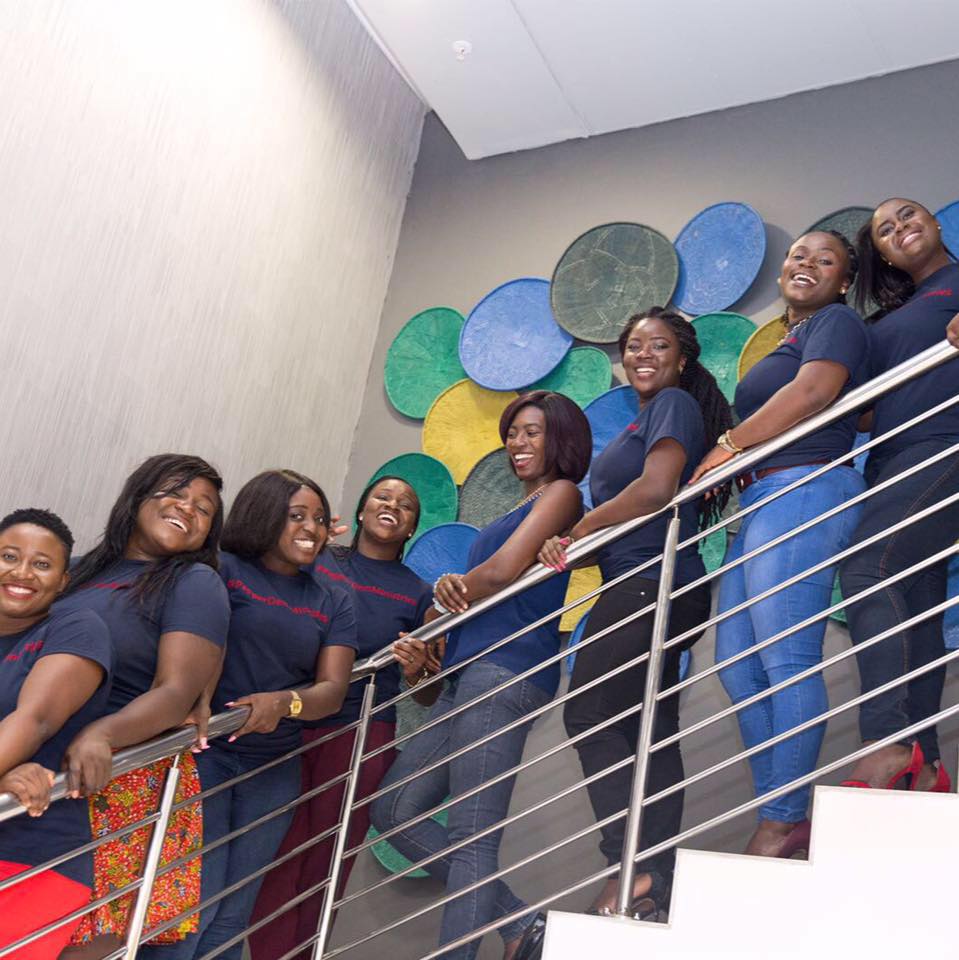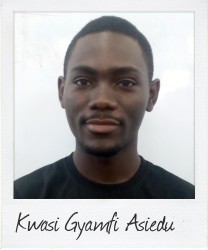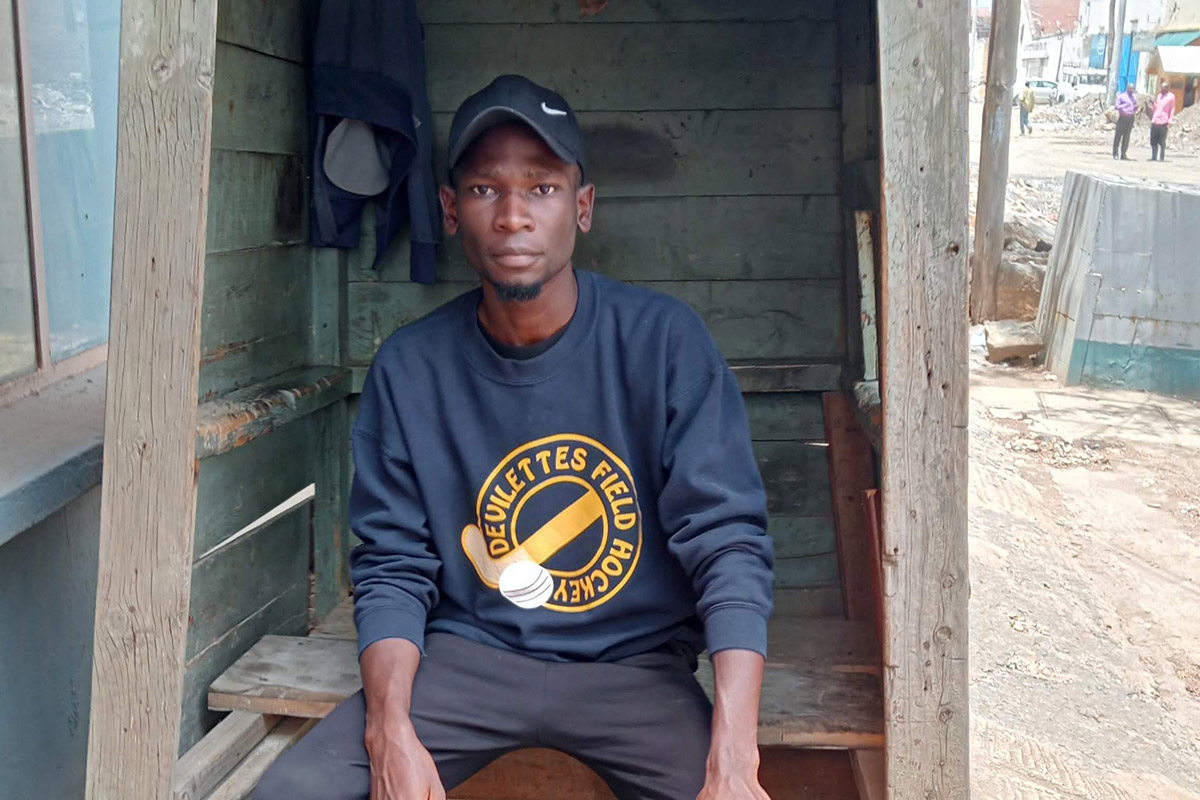“Ghana feminists flipping the gender script”
December 28In many places around the world, ‘feminist’ can be perceived as an insult, writes Kwasi Gyamfi Asiedu, 21, a Commonwealth Correspondent from Ghana. The majority belief that discrimination based on gender is wrong has failed to significantly affect social discourse in the real world, as many women continue to be constricted by societal conceptions of where their places lie.
A group of self-confessed angry women are hoping to change the situation for women. Over the last four months, Pepper Dem Ministries, a vocal movement of feminists has been ‘flipping the script’ on social media, to the admiration and condemnation of many.
By flipping the script, Pepper Dem Ministries and its supporters replace men in oversimplified roles women are expected to play, and vice versa. Some of their posts have had fictional married women complaining about their husbands not cooking or washing their laundry, or wives demanding their husbands quit their jobs and put their dreams on hold in order to look after children.
In an email interview, I began by asking the Pepper Dem Ministries (PDM) what the group fundamentally is.
PDM: Pepper Dem Ministries is a group of like-minded women who have tasked themselves and society at large to challenge normalised narratives around gender. This we do by basically flipping society’s expectations of the different genders in a quest to generate some critical reflections in everyone. We believe some of the ingrained gender norms are impractical to an extent, especially when it fails to play out when the scenario is flipped. What’s good for the goose should be equally good for the gander…The media furor that ensued highlighted the efforts of the many women who projected and sustained these ‘flipped stories’ and PDM was born out of it as a movement.
Kwasi: At first, ‘Pepper Dem’ appeared to me as a derogatory term that you appropriated. Was this the case?
PDM: That is a rather unfortunate misconception. We chose “Pepper” as the perfect metaphor, first, to localise our agenda and secondly to represent the importance of the truths we talk about despite how uncomfortable it can make us feel. Pepper is such a key spice in our society. We love it as much we hate it. Although a very necessary spice, we can’t look past the discomfort it can create in our mouths, eyes, etc. Pepper, because we are dealing with uncomfortable narratives.
Kwasi: So, what are you seeking to achieve?
PDM: We seek to draw attention to long-held narratives about gender and have conversations, discussions and debates around them. The issue is many of us know that these gender biases exist; we also know that they are unrealistic and unfair to operate by. However, we hardly ever talk about them in the technical and upfront way we are doing. So, this movement is basically to get all of us to confront these truths about how some of these toxic gender narratives can hurt us, no matter how “uncomfortable” they are.
Kwasi: There is a lot of misconception out there about what feminism is and what it is not. How would you define feminism?
PDM: It is about providing a level playing field for both genders to thrive with equal social, political and economic opportunities. The misconceptions about feminism come from a place of misinformation, ignorance and the fear of what it is not. Feminism is just the idea that all humans deserve equal opportunities and that no one should be discriminated on the basis of their gender. Treating people fairly is one of the tenets of the UN Rights charter, and feminism is one of the ways to achieve this universal right. It is not man-hating. It is not shunning femininity. It is not against women having and caring for their families if they choose to.
 Kwasi: There is a perception out there that this group is made of a bunch of rude, arrogant, angry, unmarried young women who hate men. What do think about this characterisation?
Kwasi: There is a perception out there that this group is made of a bunch of rude, arrogant, angry, unmarried young women who hate men. What do think about this characterisation?
PDM: This isn’t true, but we are very aware of what these tags seek to do; to demoralise us and shift us off the focus of speaking out strongly against the challenges societal structures and systems present its members, especially women.
Our focus is not our personal lives but the message of our advocacy. But it may also be useful to point out that we do not hate man, we are married or in fulfilling relationships or happily and by choice single but yes, we are angry at the inequalities in our society. Some people choose to refer to how we express that anger as rude and arrogant which is unfortunate, but we don’t let us that get us down. After all, Nelson Mandela was once called a terrorist.
Kwasi: In two years, if we decide to have this conversation again, what should have happened to PDM and its work towards advancing gender equality in Ghana?
PDM: We hope the conversations are still ongoing, on and off social media and that conversations on gender issues are mainstream. We hope to have made significant progress in our advocacy on sexual violence and been able to engage the relevant stakeholders to ensure the structures that should protect the vulnerable [are in place] and ensure that abusers are brought to book.
Reflecting on my interview with Pepper Dem Ministries, it’s evident that success has come quickly for the feminist activists. Since starting in September 2017, they have appeared on major radio and television talk shows, landed themselves a weekly radio programme of their own and had audience with the Minister of Information, who identifies himself as a feminist, too.
However, some women’s rights advocates have accused the movement of giving a wrong impression of what feminism is, as many have still not come to really understand the reason behind ‘flipping the script.’ By spewing slews of vitriol, parody social media movements and trolls have also taken aim at the activists in a bid to discredit their work.
As such, a lot of work needs to be done, not just by Pepper Dem Ministries but also by a critical mass of the society to triumph in this highly important odyssey towards gender equality in Ghana.………………………………………………………………………………………………………………
About me: I am Kwasi, a journalism student from Ghana. I hope to use my skills to tell positive stories about marginalised communities in the world, with the belief that these stories would force action that improves the lives of the people.
Photo credits: Pepper Dem Ministries
………………………………………………………………………………………………………………
Opinions expressed in this article are those of the author and do not necessarily represent the views of the Commonwealth Youth Programme. Articles are published in a spirit of dialogue, respect and understanding. If you disagree, why not submit a response?
To learn more about becoming a Commonwealth Correspondent please visit: http://www.yourcommonwealth.org/submit-articles/
………………………………………………………………………………………………………………





